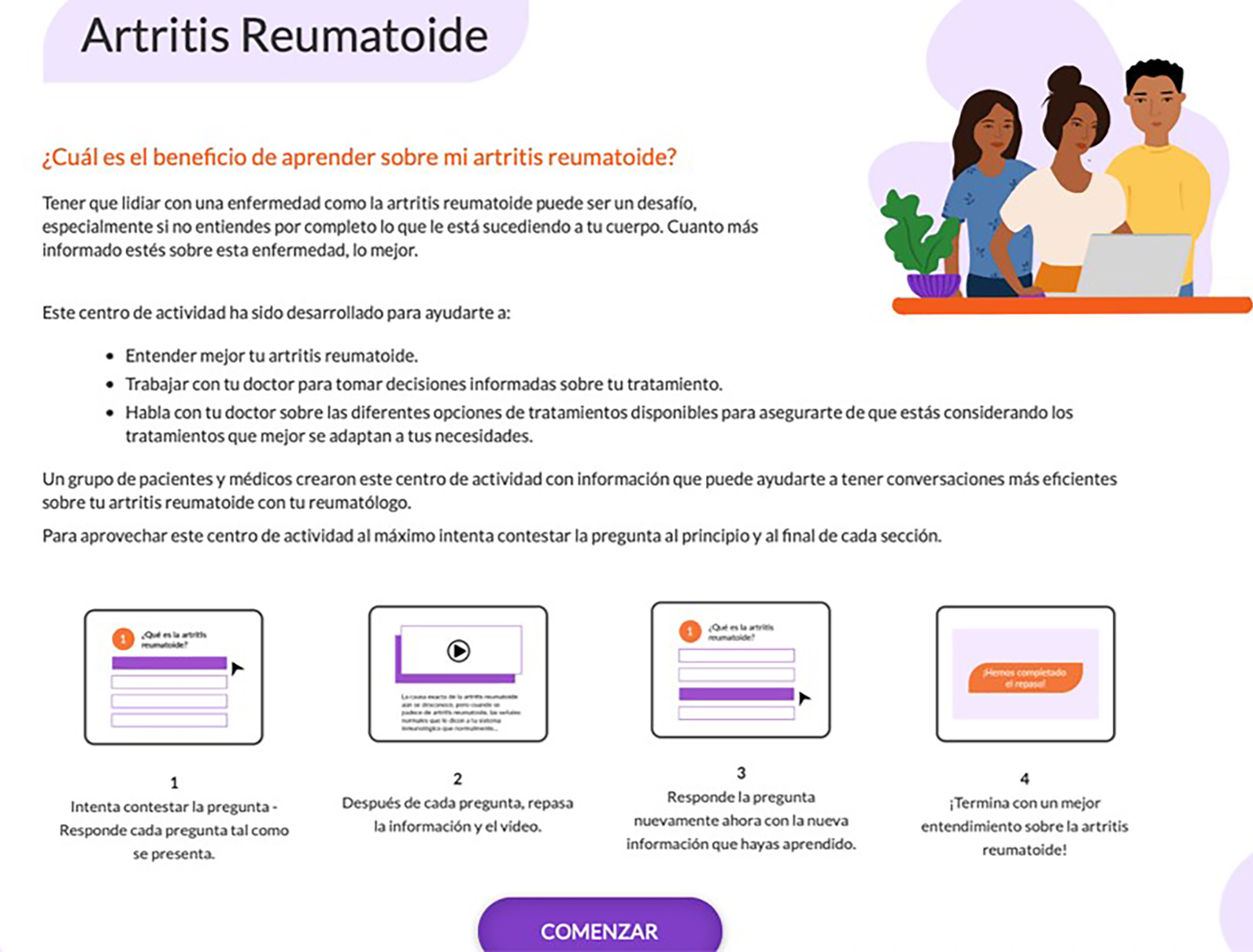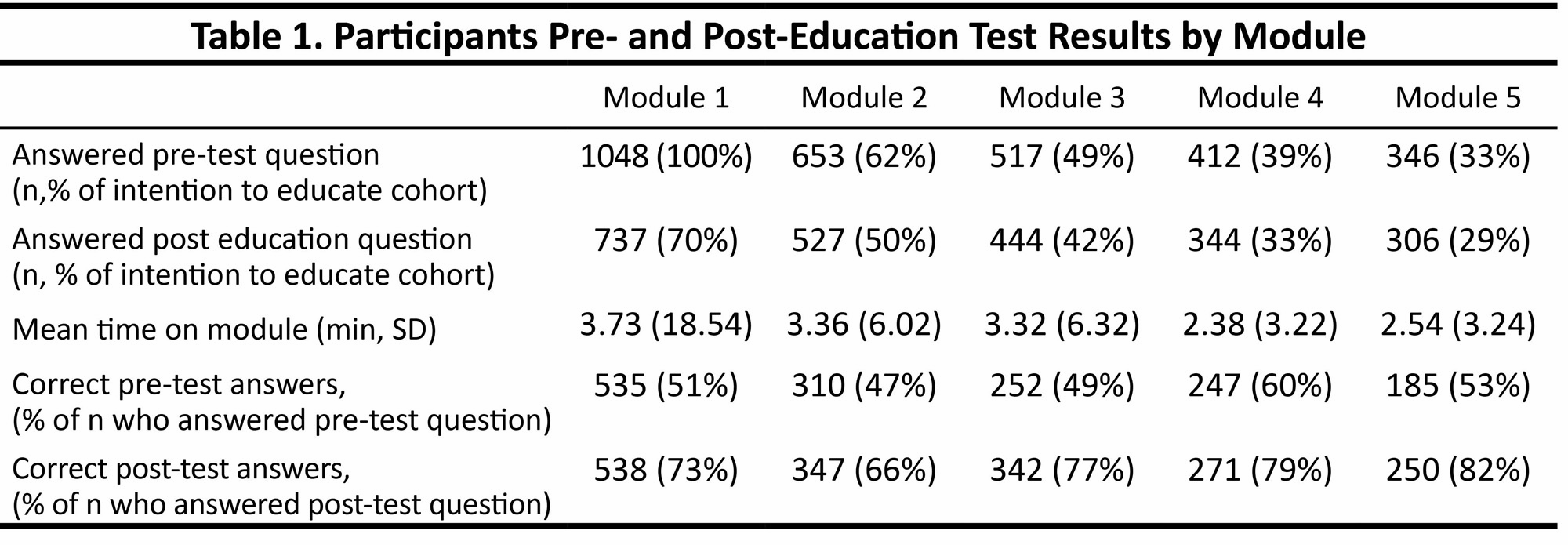Session Information
Date: Tuesday, November 14, 2023
Title: (2089–2094) Patient Education/Community Service – Interprofessional Poster
Session Type: Poster Session C
Session Time: 9:00AM-11:00AM
Background/Purpose: Spanish-speaking patients with rheumatic arthritis (RA) need RA education that is medically accurate, conversational, and engaging. Our study examined the feasibility and efficacy of creating and disseminating such education online.
Methods: Members of our research team who are fluent in Spanish collaborated with Hispanic/Latin(a/o/x) rheumatologists and RA patients to create culturally appropriate, medically accurate, Spanish-language, patient education on RA. Educational topics, identified as needs by Hispanic/Latin(a/o/x) RA patients, included RA causes, disease-modifying antirheumatic drugs (DMARDs), remission, treating to target, and lifestyle modification. Each topic was created as a distinct module that included a pre-education question to answer before viewing the module. The same question was repeated at the end of the module and had to be answered before progressing to the next. After posting modules to the CreakyJoints Español website (Fig 1), the education was promoted through national bilingual radio and television and in Spanish on social media sites (e.g., YouTube patient story videos, TikTok music videos, Instagram campaigns, and WhatsApp direct messaging). All responses were collected with SurveyMonkey with internet protocol (IP) addresses and timestamps. We calculated the number and percentage of correct and incorrect answers and the number and proportion of people who answered both pre- and post-education questions correctly or incorrectly or changed their answer from incorrect to correct and vice-versa. Changes in knowledge for those who completed each module and for those who completed all five modules were evaluated with the two-tailed Student’s paired t-test.
Results: Over six months, 1,048 users started the first module, and 70% completed it. Of those who completed the first module, 306 (33%) completed all five modules (Table 1). Responders spent a mean 3.59 minutes (SD, 11.25 minutes) on each module. Correct answers increased from pre- to post-education for all modules, as did the proportion of correct answers for all modules. Knowledge improvements (Table 2) were statistically significant for two modules at a 95% confidence interval (CI) (P< .001) and for one at a 90% CI (P< .08). One module without significant knowledge gains had similar numbers of answers changed from correct to incorrect and vice versa. The other without significant knowledge gains had a high proportion (74%) of correct answers on the pre-test. For the 306 people who completed all five modules (29%), the sum of post-education vs the sum of pre-education scores showed a statistically significant 12.5% improvement in knowledge (P=.001) with a medium effect size (Cohen’s d=.52).
Conclusion: Over 1,000 people accessed culturally appropriate, online, Spanish-language patient education. Among those who viewed all modules, knowledge increased. Three of five modules led to significant knowledge gains. For modules without significant gains, it appears one was ineffective, and another used a pre-test question that could not measure knowledge increases. Together, these data suggest it is feasible to deliver medically accurate, Spanish, RA patient education online to effectively improve health literacy.
To cite this abstract in AMA style:
Hernandez D, Bravo J, Maya Villamizar J, Soto O, Tapia A, Valenzuela G, Nowell W, Venkatachalam S. Feasibility and Efficacy of Culturally Appropriate Spanish Language-First Patient Education for Rheumatoid Arthritis [abstract]. Arthritis Rheumatol. 2023; 75 (suppl 9). https://acrabstracts.org/abstract/feasibility-and-efficacy-of-culturally-appropriate-spanish-language-first-patient-education-for-rheumatoid-arthritis/. Accessed .« Back to ACR Convergence 2023
ACR Meeting Abstracts - https://acrabstracts.org/abstract/feasibility-and-efficacy-of-culturally-appropriate-spanish-language-first-patient-education-for-rheumatoid-arthritis/



